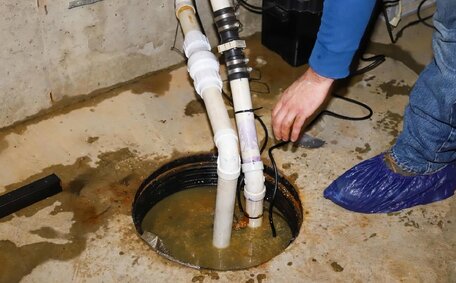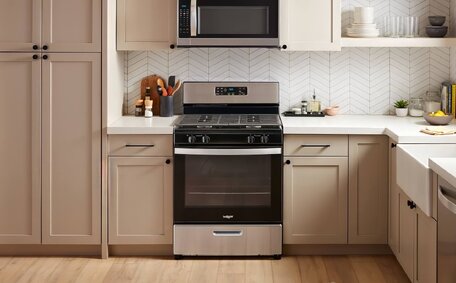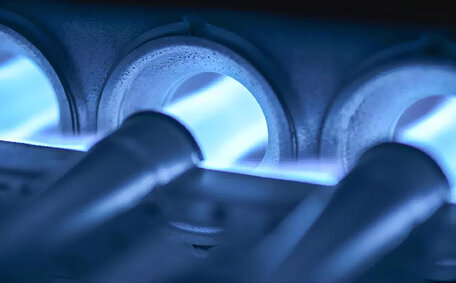How Water Quality Impacts Hot Water Systems
Elevated calcium and magnesium levels in hard water cause limescale accumulation and corrosion in your hot water system. Discolouration, odd smells, and taste changes can indicate hard water’s detrimental effects on your hot water system.
Over 60% of homes in America experience hard water issues, compromising water quality and heating system performance. The quality of water supplied to hot water systems can significantly impact performance and longevity.
Limescale encrusts heating elements, pipes, and valves, hindering the efficiency of hot water systems. Accumulated sediment can obstruct your plumbing. Annual flushing of your heater is key preventive maintenance to extend its life.
This buildup reduces heat transfer efficiency, leading to increased energy consumption when heating water.
Upgrading ageing systems to modern energy-efficient models makes your water more eco-friendly and can include options like instantaneous natural gas or solar hot water, yielding environmental savings. Consult qualified local contractors regarding optimising flow systems for your drinking water quality. Depending on your needs, solutions such as whole-home water filters may sufficiently protect your hot water heaters.
Hard Water Buildup Causing Corrosion and Reduced Efficiency
Common minerals in your tap water contribute to limescale deposits in hot water systems, affecting their efficiency over time. As layers of calcium and magnesium-rich hard water residue coat water pipes and critical components, your heater must work harder to warm water.
This mineral buildup prevents effective heat transfer. Over a 5 to 8-year period with hard water, your water heater efficiency may decline by as much as 24%. Excess scale can act as an insulator, forcing your system to burn more gas or consume more electricity while heating water.
Limescale and corrosion damage also reduces lifespan expectancy of water heaters by up to 4 years. Mineral acids in hard water can corrode pipes, leading to potential leaks or water pressure problems.
Water softening systems prevent mineral buildup and contribute to environmental sustainability, especially in regions with very hard water. Water softeners work by removing minerals, tailoring a solution depending on where you live, using ion-exchange resin materials. This protects your water heater and plumbing from scale buildup and corrosion over time.
Sediment Buildup and Contaminants Affecting System Components
Sediment and mineral deposits tend to accumulate at the bottom of storage hot water system tanks over time. As things can build up, heating elements and thermostat probes become coated, reducing their efficiency.
Annually draining gallons from your heater’s tank removes sediment and shields system components. Before flushing, turn off power, stop the water supply, and connect a hose to the bottom drain valve.
Iron bacteria, manganese and sulphates can also impact components. When thinking, 'Do I need help?', consult a licenced plumber regarding flushing procedures or water treatment solutions for your specific situation.
Ensuring adequate water flow and pressure is the first step to maintain quality water and prevent sediment settling within the tank. Clogs, undersized piping, or high water usage can cause flow restrictions, leading to particle accumulation.
Similar to other household appliances, hot water systems need regular maintenance to maintain efficiency and extend their lifespan. Protect your hot water heater with annual flushing after reviewing manufacturer guidelines. If you lack expertise performing maintenance, follow these guidelines and seek professional assistance to install a water filter.
Maintaining Optimal Water Temperatures to Prevent Bacteria Growth
Keeping your hot water at an optimal water temperature range between 50-60°C is vital to prevent harmful bacteria growth within systems. Water temperatures exceeding 65°C accelerate mineral buildup and corrosion, while below 50°C risks pathogenic bacteria like Legionella multiplying.
Well-maintained continuous flow systems prevent conditions that allow harmful bacteria to proliferate rapidly. Lack of adequate disinfectants in storage tanks can facilitate bacterial biofilm formation, although less common in systems maintaining higher temperatures. Maintaining temperatures between 50-60°C impedes bacteria growth.
Consult manufacturer guidelines as optimal settings vary between models. Consider replacing outdated thermostats with modern units featuring precise temperature sensors.
Conduct annual servicing and inspect storage tanks for any sediment buildup or corrosion that could facilitate bacterial growth.
Reputable local plumbers can test about water quality to identify risks. Proactive maintenance keeps your home’s water quality safe and also extends the operating life of heaters. Remember, proper temperature regulation in hot water systems saves money while protecting your household’s health.
When to Service or Replace Water Heaters Due to Water Quality Issues
Determining when your hot water system needs servicing or replacement due to water quality can be challenging. Warning signs suggesting immediate inspection include:
- Discoloured water or changes in taste/odour
- Noisy rumbling or banging from sediment buildup
- Leaks, dripping taps or loss of water pressure
- Frequent drainage/refilling due to premature cooling
- Rust accumulation or signs of corrosion on fixtures/pipes
- Higher energy bills from declining efficiency
For systems older than 8-10 years, consider an upgrade to a newer, energy-efficient model to better meet your needs. New solar or gas continuous flow hot water systems yield savings on bills while protecting against water quality issues.
For affordable servicing or upgrades tailored to your situation, contact our team at Paddington Plumbing on 1300 349 338.
Our experienced technicians offer comprehensive assessments to uncover issues, verify water quality, and suggest maintenance tasks like descaling to enhance your system’s lifespan.
Protect your household and finances this year by proactively maintaining your hot water system.
Water Softening and Filtration Solutions
In areas with hard tap water, installing a water softener or filter offers an effective solution. Water softeners use ion-exchange materials to remove excess calcium and magnesium minerals. Sediment filters trap particles to improve water clarity and flow.
Benefits of water softening and filtration extend to improved performance and longevity of your water heater:
- Prevents scale buildup and corrosion in hot water systems
- Protects household plumbing and extends lifespan
- Removes sediment particles clogging fixtures
- Enhances efficiency of water heaters
- Improves water quality and taste
When choosing water softening or filtration, consider factors like household size, water usage, pipe types and water hardness level. Reputable brands like Fleck or Clack offer reliable valve-based control. Choose a system your family can manage with easily replaceable filters and minimal maintenance needs.
Consult your local plumbers for more information on tailoring solutions to your household’s needs. Paddington Plumbing offers water testing and affordable system installations - contact us today!
Energy-Efficient System Upgrades for Improved Performance
Switching to an energy-efficient hot water system with a new anode rod can lead to substantial energy bill savings and better resistance to water quality challenges.
Modern systems like continuous flow heat pump or solar hot water can last over 20 years, far surpassing the lifespan of traditional water heater tank heaters.
Heat pumps, by utilising ambient air or ground energy, and solar hot water systems, by harnessing sunlight, both offer highly efficient heating solutions.
When sized appropriately for household requirements by our experts, upgraded systems can lower annual costs by hundreds of dollars compared to outdated electric or gas storage tank heaters. Choosing tankless water heaters also saves space without compromising on comfort.
Contact Paddington Plumbing today at 1300 349 338 regarding upgrading your hot water system. With over 15 years of experience, we tailor the most suitable heating solution to your home’s needs while protecting the environment and your hip pocket.
Protecting Health and Reducing Environmental Impact
Maintaining water quality and efficient hot water systems is crucial for safeguarding health and reducing environmental impact.
Systems affected by hard water, corrosion, and sediment buildup are susceptible to hosting dangerous bacteria such as Legionella. Storage tanks containing lukewarm water lacking disinfectants pose high risk. Only by maintaining temperatures between 50-60°C can we impede bacteria growth. Ensure heaters retain optimal temperatures.
Upgrading ageing heaters to modern energy-efficient systems like hot cold water solar or heat pumps also yields environmental savings. New systems avoid standby losses from constantly heating stored water, lowering carbon emissions and annual bills by hundreds of dollars.
Trusted your local plumbing experts like Paddington Plumbing tailor sustainable solutions meeting your household’s needs while safeguarding health. Schedule annual servicing to proactively maintain systems. Consider filters or softeners if water quality risks remain concerning.
Protect those you love and our planet this year through responsible water heating. Contact us online or call 1300 349 338 to discuss solutions with our qualified technicians.






